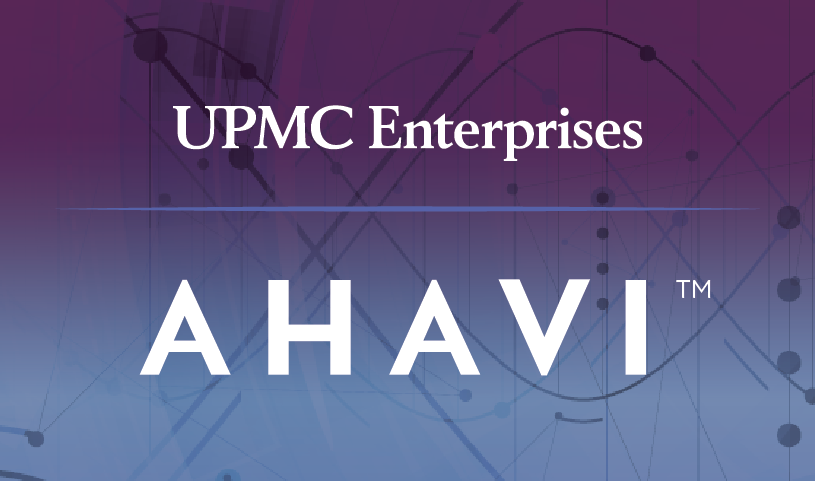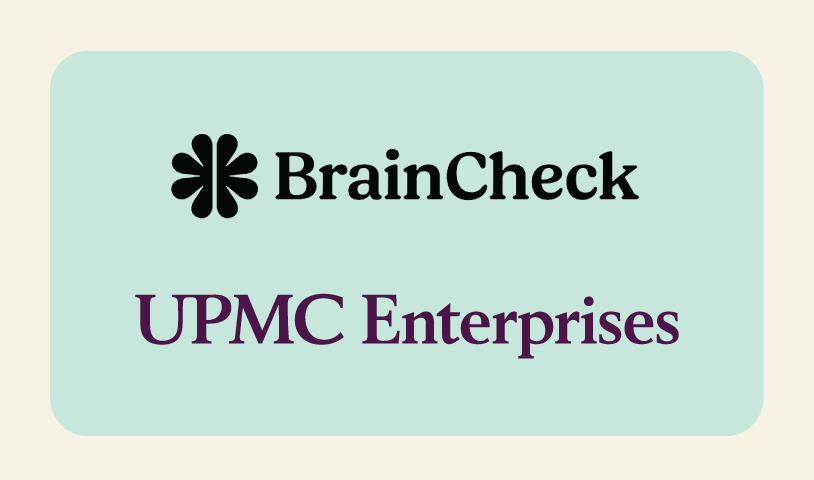Health system’s innovation and commercialization arm not only is building successful companies, but also investing in human capital

It’s been five years since UPMC rebranded its long-standing work on health care innovation and commercialization by forming UPMC Enterprises. Leading those efforts has been Tal Heppenstall, president of Enterprises and the treasurer of UPMC.
We checked in with Heppenstall for an update on where things stand at the organization, what some of the changes have been and what he’s excited about for the future.
Keep reading to learn more about Enterprises’ recent work in Translational Science and to find out the one thing Heppenstall would want if he were stranded on a desert island.
What have been some of the changes at UPMC Enterprises as the organization has evolved in the past few years?
One of the biggest changes has been the development and maturation of our opportunity pipeline. When we officially formed UPMC Enterprises five years ago, we had a bunch of ideas for problems we wanted to fix, but we were still trying to figure out where we could have the biggest impact, both at UPMC and across the health care system.
Since then, we’ve partnered with a range of startup companies and worked with them to deploy their technology at UPMC. We’ve also been developing our own technology and companies to address challenges we see in health care. The result is we now have more than 30 of these opportunities, both internally developed and from external partnerships, deployed at UPMC.
Another change has been the addition of Translational Sciences as a second focus area along side Digital Solutions.
What is Translational Sciences, and why is it a focus area?
We have built a team that combines scientific, clinical, and investment expertise to support the commercialization of cutting-edge research, particularly through UPMC’s affiliation with the University of Pittsburgh and its Schools of the Health Sciences. Pitt is in the top five in the nation for National Institutes of Health research funding. There are so many scientific discoveries being made in the labs there, and we want to help speed up the translation of those discoveries into successful companies.
One of the team’s top priorities is to become a world leader in delivering new models of care that harness the human immune system to treat disease, particularly in the areas of cancer, transplantation, aging, and chronic diseases. But we’re also looking at areas beyond immunotherapy, including therapeutics, diagnostics, and devices. We want to work with leading scientists and clinicians at UPMC and Pitt to create successful startup companies, and to invest in external companies that complement our strategic focus.
At the end of the day, it’s usually the venture capital funds that benefit tremendously when new drugs and other therapies go to market. UPMC intends to keep some of that money, which comes from research that’s being done in Pittsburgh and at Pitt, to sustain our clinical excellence and research, and benefit our patients.
What are some of the biggest successes Enterprises has had since forming?
I know I’ve said this before, but Enterprises is really just carrying on the tradition of innovation and entrepreneurial success that started with the formation of UPMC’s predecessors more than 45 years ago. The biggest entrepreneurial success at UPMC is the UPMC Health Plan, which is now the biggest insurer in Western Pennsylvania and offers products statewide.
Other financial successes for UPMC include Evolent and Stentor. UPMC co-founded Evolent, which went on to complete an initial public offering valued over $1 billion. Stentor, which developed digital radiology technology, was purchased by Philips for $280 million.
More recently, another one of our portfolio companies, Health Catalyst, which we have been working with extensively to develop products that help health systems solve data and analytics problems, also went public with a valuation of $1 billion. We’re still an investor in Health Catalyst, and, more importantly, the company’s products are deployed at UPMC to help us provide better care to our patients.
You’re now five years into leading UPMC Enterprises; what’s the biggest lesson you’ve learned?
I’m most proud of the team we’ve built here at UPMC. Some people may think of us for the capital that we’re investing in all the great ideas to make health care better. But really the greatest accomplishment is the human capital of UPMC. Without all the smart folks we have across UPMC building out the ideas, working to integrate them into our businesses, and making our companies successful, we wouldn’t be where we are today.
What is an area of health care innovation where you see potential for significant impact across the health care industry?
The things that we’re seeing in our Translational Sciences area, and the cures that could be developed, are simply astonishing. The potential benefit to patients and their families and our community is amazing. I am very excited about that focus area.
But it goes beyond Translational Sciences because many of the newest treatments that are being developed are going to be personalized, and you need the data in order to figure out who’s going to respond to these treatments. That’s one of the major focuses within our Digital Solutions area. If you can’t surface health care data and make it easily accessible for researchers, clinicians, payers, drug manufacturers, and, most importantly, patients then any treatments will fail. It’s really all about enabling personalized medicine in real time across health care.
And finally, I’ll call out one other data-related opportunity that I’m excited about. We are working with a company called Abridge, which has created a mobile application that empowers patients to securely record, review, and share conversations with their doctors. Abridge’s machine learning algorithms help pull out important information from the conversations for patients to review later and share with others, including family members and clinicians. Abridge is giving patients the tools needed to be more involved in their health care. The technology also demonstrates our commitment to being patient-centered.
If you were stranded on a desert island, what is one item you would want and why?
My tractor. It’s a Yanmar 49 horsepower diesel four-wheel-drive with a front loader and agricultural tires. The things you can do with a front loader are nearly endless.


